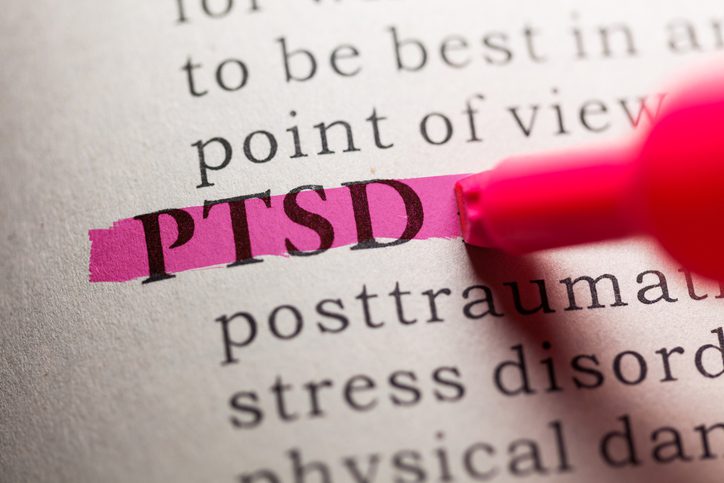
PTSD: Survival, Treatment, and Coping
Post-traumatic stress disorder, or PTSD, is a mental health disorder some people develop after a particularly scary or traumatic event. PTSD, though scary and emotional, is a natural reaction or development after trauma. A person can develop this condition from virtually anything. There is no shame in being afraid or experiencing symptoms of PTSD for any cause.
History of PTSD
For a long time, PTSD was only recognized in war veterans who experienced a great deal of near-death experiences, tragedy, trauma, and injury. At the time, PTSD was called “shell-shock,” and a veteran was said to come home “shell-shocked” from what they had seen.
According to the National Institute on Mental Health, it was common knowledge to doctors at the time that concussions and other injuries to the head put soldiers at higher risk for PTSD. What they did not always realize was the emotional toll that war took on them and how people who did not experience war can experience similar symptoms from other traumas.
Defining PTSD
PSTD is known as a range of reactions that develop in people who experience extreme trauma (NIMH). Symptoms for PTSD will usually begin within three months of the trauma but may be experienced years later. Those who experience this condition will experience a wide range of symptoms leading to diagnosis. These symptoms can be broken up into several categories, including:
#1. Re-Experiencing Symptoms. These cause problems in one’s everyday routine, especially when they start thinking about painful memories or experience unfortunate reminders. Symptoms include:
- Flashbacks to the trauma, including the physical state of the trauma, such as increased heartbeat and sweating
- Bad dreams reliving the trauma
- Frightening thoughts
#2. Arousal and Reactivity Symptoms. Arousal symptoms are normally chronic and cause stress, fear, and irritability in a person. Daily tasks may be difficult for a person due to the following symptoms:
- Being easily startled
- Chronically feeling tense or on-edge
- Having difficulty sleeping
- Having angry outbursts
#3. Cognition and Mood Symptoms. These symptoms can make a person feel detached and alienated from others. Many people will experience these symptoms for at least a few weeks after a traumatic event:
- Trouble remembering key features of the traumatic event
- Negative thoughts, either about the world or oneself
- Distorted feelings of guilt or blame
- Loss of interest in enjoyable activities
#4. Avoidance Symptoms. Avoidance symptoms may cause changes to a person’s routine or normal daily life. Reminders of a traumatic event will trigger symptoms like these:
- Staying away from places, events, or objects that remind a person of that particular event
- Avoiding thoughts or feelings of traumatic events
Diagnosis of PTSD
According to the National Institute on Mental Health, most people will experience PTSD symptoms in the short term after a traumatic event and will maybe experience a few of them for longer. Symptoms that last longer than a month and that affect your relationships, work, and daily routines drastically beyond the initial point of grief are considered when looking at a diagnosis. In adults, to be diagnosed with PTSD, one must have each of the following for at least one month:
- At least one re-experiencing symptom
- At least one avoidance symptom
- At least two arousal and reactivity symptoms
- At least two cognition and mood symptoms
PTSD in Children
Children can also develop PTSD and will experience different symptoms than adults. Children who experience PTSD may experience symptoms such as:
- Wetting the bed
- Forgetting how or being unable to talk
- Acting out the scary event during play or game time
- Being unusually clingy with a parent or adult
Older children may have similar symptoms to adults and may act out or display disruptive behaviors. Children need reassurance that their caretakers will keep them safe. Children’s behaviors often communicate a need for safety as they push boundaries.
Caretakers of children with PTSD may need extra help with patience, therapy, family counseling, and community services if they are available to them. Helping a child heal as soon as possible will ensure that they grow with strategies to take into adulthood and will hopefully prevent a child from making detrimental or dangerous decisions.
Treatment and Coping With PTSD
PTSD treatment is best practiced through therapy. The most standard therapy issued is psychotherapy, also known as “talk” therapy. Cognitive-behavioral therapy is also highly beneficial for those with PTSD, along with exposure therapy, yoga, other mindfulness practices, and dialectical behavioral therapy.
Everyday coping strategies can start with a diet and exercise routine to help a person’s body feel sound and strong. One may also develop a routine with the help of their doctor or therapist that helps with healing and is subject-strength-based, meaning that the person with PTSD builds on their strengths in order to heal.
PSTD is a common illness that develops in people who have experienced something traumatizing or terrifying. Many who suffer from PTSD find themselves self-medicating and spiraling into substance or alcohol abuse to numb PTSD symptoms. The unfortunate effect of self-medication that spirals into addiction is that it does not help a person heal from PTSD, it simply prolongs the symptoms and requires further recuperation when a person is ready to treat and recover from their addiction. Though difficult, it is not impossible to treat co-occurring conditions. You can find help for both PTSD and addiction at RECO Intensive. At RECO Intensive, we understand that PTSD can be terrifying, and getting help after a traumatic event is imperative. Our professional staff and experienced alumni can help you create a plan that is specifically catered to your PTSD and addiction needs. Call us at (561) 464-6533 for more information about RECO Intensive services. Let’s get back to a brighter future.